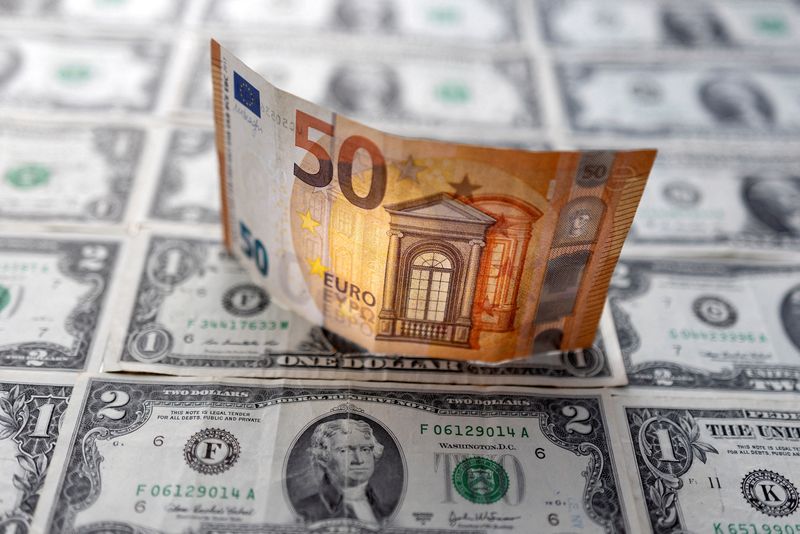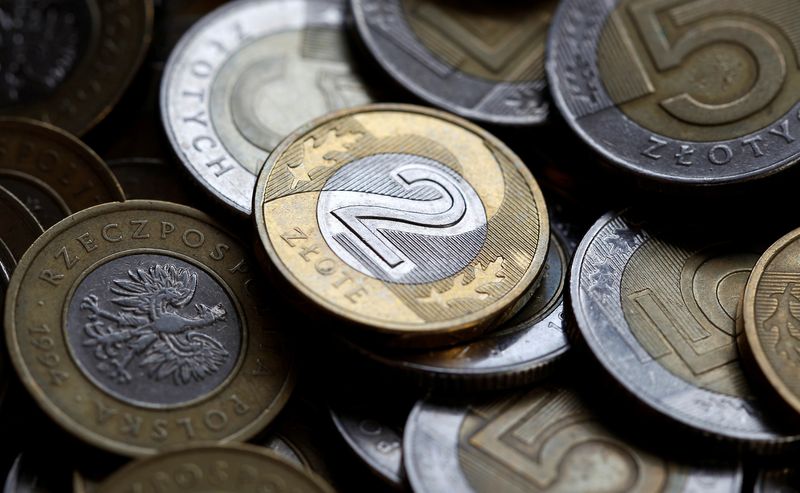By John McCrank and Joice Alves
NEW YORK – The euro gained more than 1% against the dollar on Wednesday as risk appetite returned to financial markets and commodity prices eased from recent peaks that were driven by Russia’s ongoing invasion of Ukraine.
After touching a 22-month low on Monday of $1.0806, the euro was last at $1.1019, up 1.15% on the day, after a report citing unnamed officials said the EU was discussing joint bond issuance to finance energy and defence spending.
Just one month ago, the euro was close to touching $1.15, and its rapid decline to below $1.10 may have been overdone, said Joseph Trevisani, senior analyst at FXStreet.com.
“That’s an extremely fast and steep move and so I think we’re seeing some profit-taking and also some reversal based on that,” he said.
Against a basket of currencies including the euro, the dollar fell 0.851% to 98.276, after hitting a 22-month peak on Monday.
Markets also welcomed a pull-back in commodity prices that have contributed to surging inflation and added to uncertainty around economic growth expectations.
Brent crude was down 5.4%, at $121.02 a barrel, after earlier falling to as low as $120.04, while U.S. West Texas Intermediate fell 5.3%, to $117.14. Both are still up around 40% since Feb. 23 – the day before Russia launched its attack on Ukraine – and have hit their highest since 2008.
Some investors took the view that the U.S. ban on Russian oil may not worsen a supply shock and the head of the International Energy Agency said the agency could further tap oil stocks.
Easing oil prices helped Wall Street’s main stock indexes to open sharply higher on Wednesday, with investors snapping up stocks hammered by concerns over Western sanctions on Russia.
“It’s certainly a risk on move today in all the markets,” said Trevisani.
European currencies such as Poland’s zloty and Hungary’s forint rose sharply, rebounding from record lows against the euro, also supported by both central banks hiking rates on Tuesday.
The European Central Bank meets on Thursday but amid the spectre of stagflation, money markets expect policymakers to delay rate hikes until late in the year. [IRPR]
“European currencies have been under heavy pressure for the past couple of weeks and some of these valuations have begun to look stretched,” said Jane Foley, head of FX Strategy at Rabobank in London.
Sterling rose 0.49% against the dollar to $1.31655, Poland’s zloty jumped %6.07 against the greenback to 4.3095 and Hungary’s forint rose 3.62% to 342.72.
In the United States, President Joe Biden signed an executive order on Wednesday requiring the government to assess the risks and benefits of creating a central bank digital dollar, as well as other cryptocurrency issues, the White House said.
Analysts viewed the long-awaited executive order as a stark acknowledgement of the growing importance of cryptocurrencies, such as bitcoin and ether, and their potential consequences for the United States and global financial systems.
Bitcoin rose 9% to $42,260, on track for its biggest gain since Feb. 28, while smaller peer ether added 6.2% to $2,737, also set for its best day this month.
(Reporting by John McCrank in New York and Joice Alves in London; Editing by Kirsten Donovan and Emelia Sithole-Matarise)

